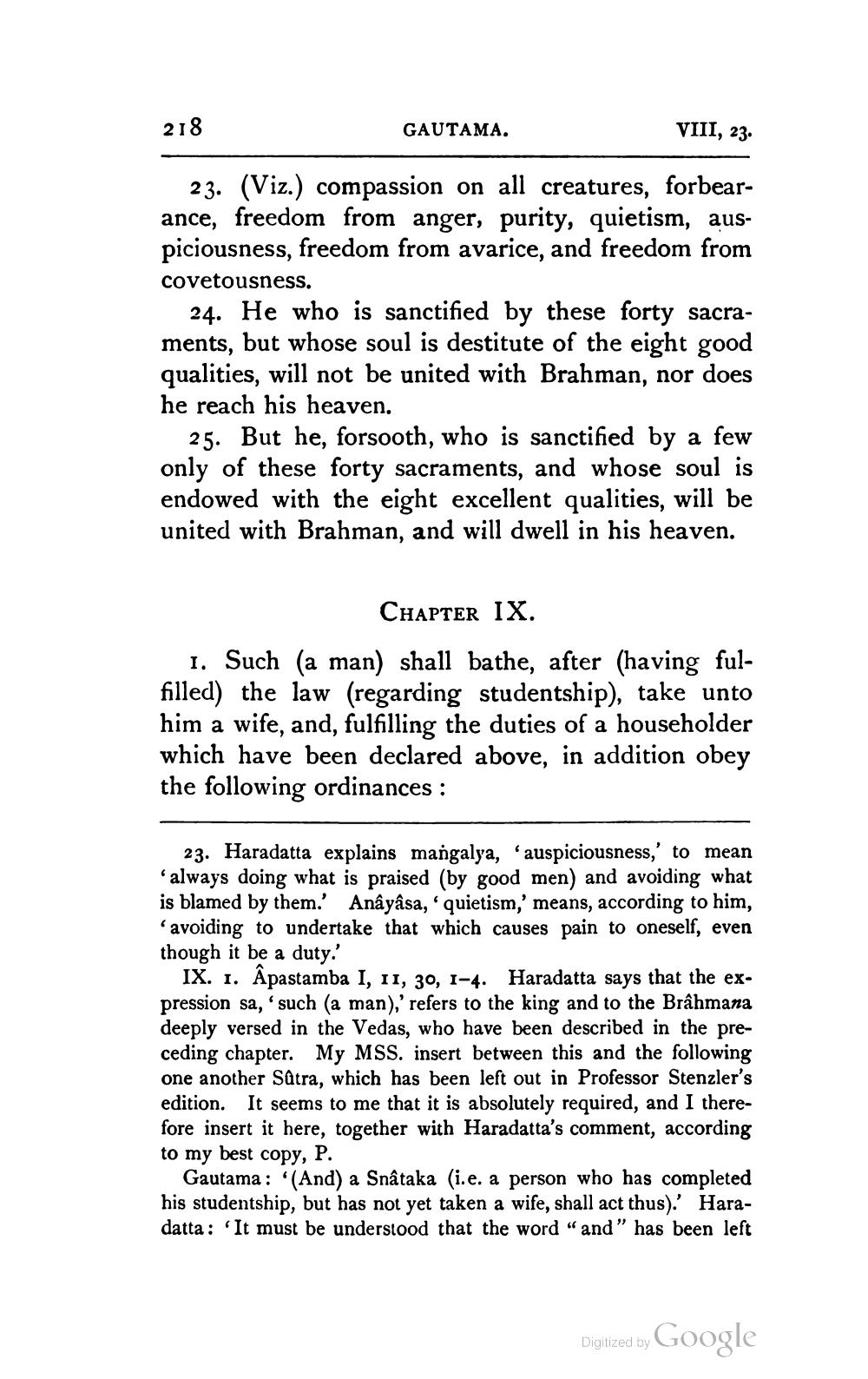________________
218
GAUTAMA.
VIII, 23.
23. (Viz.) compassion on all creatures, forbearance, freedom from anger, purity, quietism, auspiciousness, freedom from avarice, and freedom from covetousness.
24. He who is sanctified by these forty sacraments, but whose soul is destitute of the eight good qualities, will not be united with Brahman, nor does he reach his heaven.
25. But he, forsooth, who is sanctified by a few only of these forty sacraments, and whose soul is endowed with the eight excellent qualities, will be united with Brahman, and will dwell in his heaven.
CHAPTER IX. 1. Such (a man) shall bathe, after (having fulfilled) the law (regarding studentship), take unto him a wife, and, fulfilling the duties of a householder which have been declared above, in addition obey the following ordinances :
23. Haradatta explains mangalya, 'auspiciousness,' to mean always doing what is praised (by good men) and avoiding what is blamed by them. Anâyâsa, ' quietism,' means, according to him, 'avoiding to undertake that which causes pain to oneself, even though it be a duty.'
IX. 1. Apastamba I, 11, 30, 1-4. Haradatta says that the expression sa, such (a man),' refers to the king and to the Brâhmana deeply versed in the Vedas, who have been described in the preceding chapter. My MSS. insert between this and the following one another Sätra, which has been left out in Professor Stenzler's edition. It seems to me that it is absolutely required, and I therefore insert it here, together with Haradatta's comment, according to my best copy, P.
Gautama : '(And) a Snâtaka (i.e. a person who has completed his studentship, but has not yet taken a wife, shall act thus). Haradatta: 'It must be understood that the word "and" has been left
Digitized by Google




